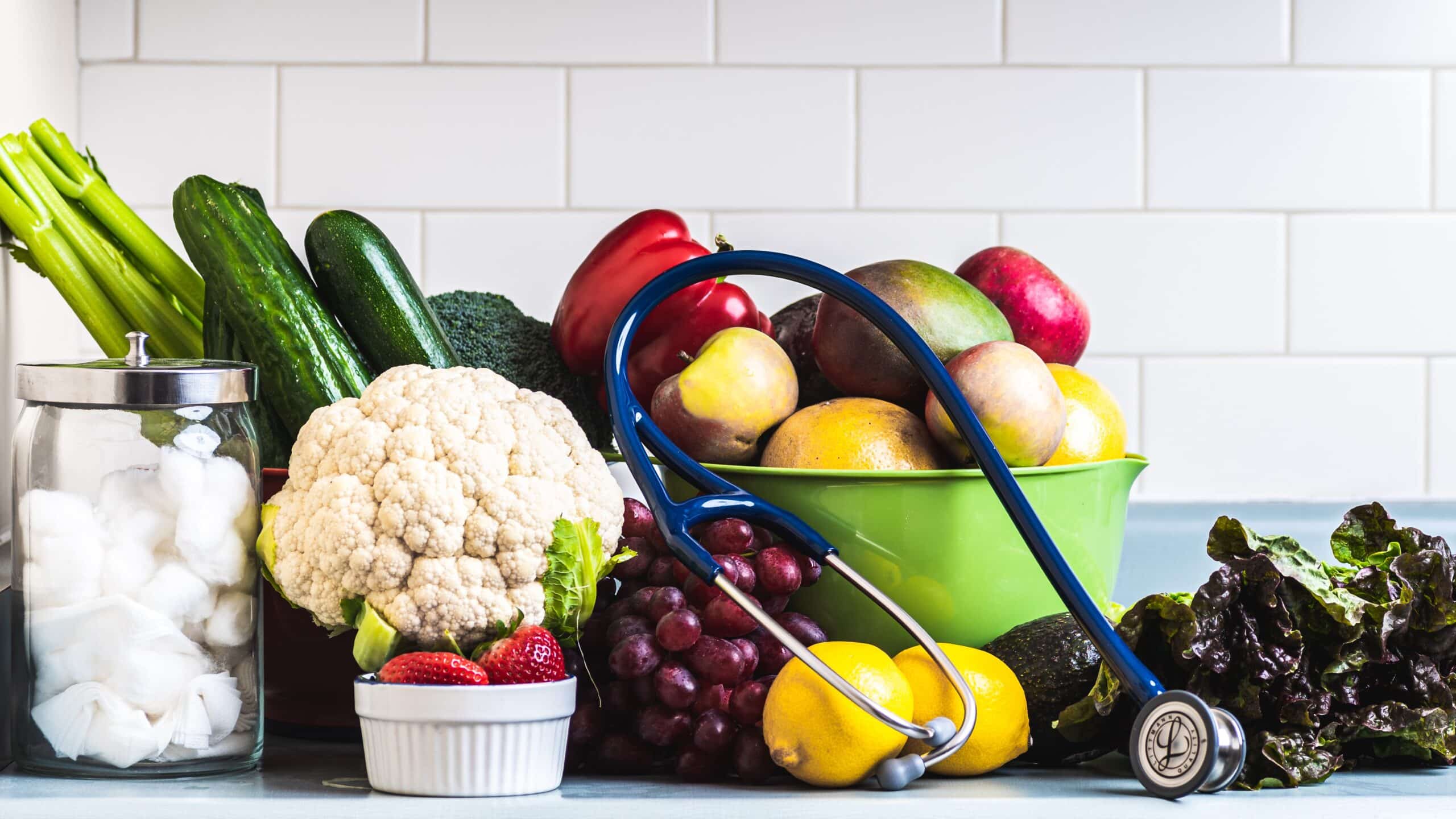“We can access fresh fruit and vegetables and not have to stress about the financial aspect of it,” said Crocker, “Money is tight, certainly for seniors, money is tight. Everything’s gone up, gas has gone up, food at the stores have gone up, we might have been able to eat the way we should be eating because of those restrictions. This program made it possible, and made it easy, made the food available. That’s a benefit to everyone in the community.”
This participant, Roz Crocker, is referring to The SEED’s Fresh Food Prescription (FFRx) program. The program is pretty simple in its design, doctors and healthcare practitioners prescribe fresh food to community members who need it for their health. Participants redeem their prescriptions for free fruits and vegetables via SEED Market locations or Groceries from The SEED. Each participant is given $10/person in their household up to $50, each week for 52 weeks.
As a program of the Guelph Community Health Centre (Guelph CHC), The SEED saw an opportunity to work with health professionals to begin to embed access to food within the health care system. We would do this by leveraging relationships with primary care providers, dieticians, and social workers employed at the Guelph CHC. We were inspired by the social prescribing movement which promotes health-care providers to connect patients with non-clinical community services and supports.
In 2019, pre-pandemic, through a provincial pilot of social prescribing by the Alliance for Healthier Communities and Ontario Trillium Foundation, we launched our Fresh Food Prescription pilot. Our first pilot had 60 households using their prescriptions weekly for 12 weeks (about 3 months) at the Community Food Markets. We partnered with the University of Guelph (UoG) to evaluate the pilot closely. Patients of the Guelph Community Health Centre (GCHC) who were prescribed fresh food could use their prescriptions at the markets and take their produce home to eat. We knew were just scratching the surface on the benefits a program like this could have in the community.
The evaluation revealed that participants felt the program was beneficial to their diet and nutritional health, their food security, and their social relationships. Part of what lead to its success was the way The SEED integrated staff support, made markets accessible, and offered high-quality, low-cost options (participants would redeem their prescriptions at the lowest cost offered, which meant $10 was equal to about $15 at a retail store.
We used the results from the pilot phase to advocate to new funders that this was a program worth continuing. In 2020, through generous gifts from The Sprott Foundation and The McConnell Foundation we were able to run the program again for about 60 households (~ 200 people) for 1 year, providing access to weekly fresh food. This second phase of the program coincided with the pandemic and the continued closure of our sliding scale markets. Through our Emergency Food Home Delivery program followed by Groceries from The SEED, we had developed the online store and operating plans to be able to allow participants to redeem their vouchers online and have the food delivered directly to their homes. This remains the main method that participants use to redeem their vouchers to this day. This was invaluable as many community members have physical and/or mental health barriers to leaving their homes.
This second phase of the program also included research and evaluation. This time conducted by the Universities of Victoria and Waterloo, the results again revealed that participants’ food insecurity improved. The proportion of participants classified as severely food insecure fell from 47.4% to 24.5%. Consumption of fruit, dark green vegetables, orange vegetables, and other vegetables increased during the intervention. Mean fasting insulin and vitamin C levels improved. People who needed this support the most, benefited the most from the program.
Through sustained donations from The Sprott Foundation and new support from The Schad Foundation we are able to continue to support these community members from 2023 into 2024. We hope to secure more funding to continue and expand this work. Like many stop-gap measures to mitigate the risk of food security, this program only improves food insecurity and health outcomes while we have funding for it. Many of the people we support continue to be food insecure but at a lesser severity. They need more support to access their basic human right to food.
Community members find a lot of value in this program and feel like it extended their income support further to cover living expenses and reduce sacrifices required to meet basic needs. Participants felt they had to access other emergency food assistance less often and participants preferred our model of support over other emergency food provision. We have listened to feedback from community members and opened the prescriptions up to all foods on The Groceries from The SEED as we know all foods fit into a healthy diet. We are so grateful to our community for trusting us in supporting them and feel a great deal of responsibility to keep this program running.
